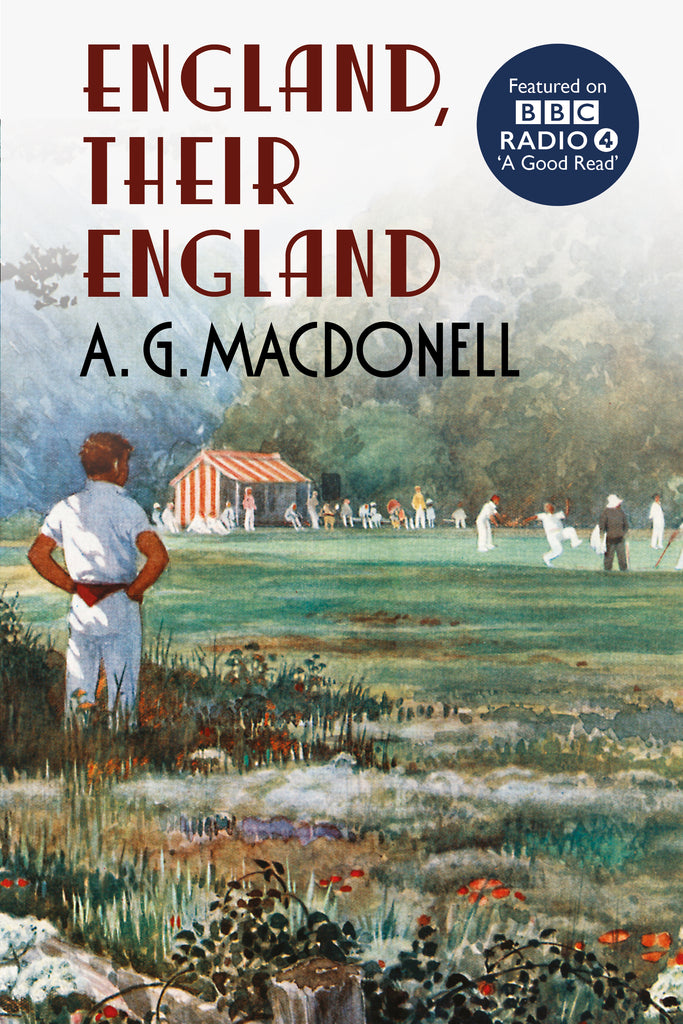England, Their England is an affectionately satirical inter-war comic novel first published in 1933. It hit the right spot at the time and became a bestseller, and has endured as a classic of humour, transending the passage of time. It is particularly famed for its portrayal of a village cricket match.The plot — if there can be said to be a plot — is set in 1920s England, the book is written as if a travel memoir by a young Scotsman who had been invalided away from the Western Front, “Donald Cameron”, whose father's will forces him to reside in England. There he writes for a series of London newspapers, before being commissioned by a Welshman to write a book about the English from the view of a foreigner.Taking to the country and provincial cities, Donald spends his time doing research for a book on the English by consorting with journalists and minor poets, attending a country house weekend, serving as private secretary to a Member of Parliament, attending the League of Nations, and playing village cricket.The village cricket match is the most celebrated episode in the novel, and a reason cited for its enduring appeal. An important character is Mr Hodge; a caricature of Sir John Squire (poet and editor of the London Mercury) while the cricket team described in the book’s most famous chapter is a representation of Sir John’s Cricket Club — the Invalids — which survives today.The book ends in the ancient city of Winchester, where Macdonell had gone to school.
| BOOK ISBN |
9781781550007 |
| FORMAT |
234 x 156 mm |
| BINDING |
Paperback |
| PAGES |
192 pages |
| PUBLICATION DATE |
15 June 2012 |
| TERRITORY |
World |
| ILLUSTRATIONS |
|
A. G. Macdonell, (1895-1941) was a journalist and satirical novelist. Without doubt his best-known work was England Their England, but the success of this overshadows his other books, many of which were classics in their own way.
The Autobiography of a Cad must surely rank as one of the funniest books ever written and Lords and Masters is a cutting and hardhitting satire with frightening prescience, foreseeing the Second World War as inevitable.

